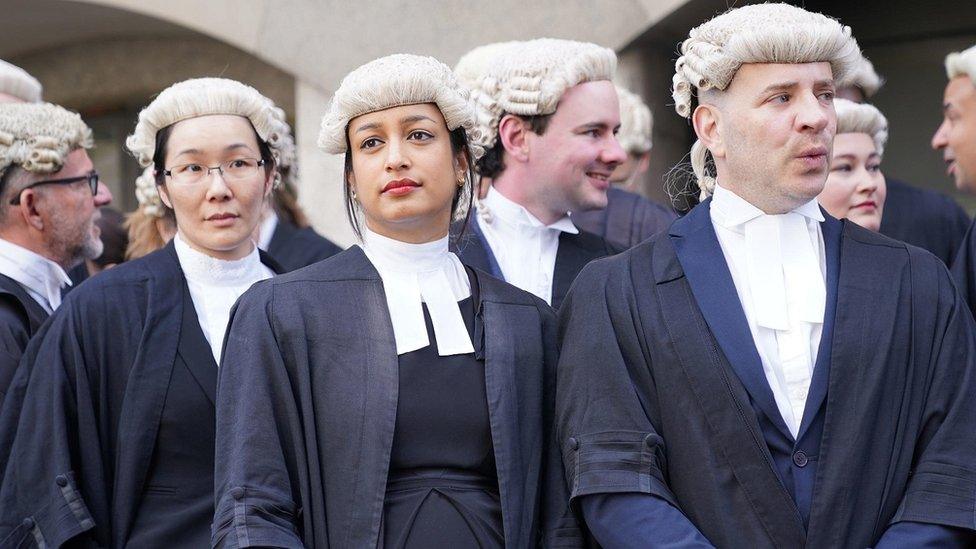Barristers in Birmingham protest over 'broken' system
- Published
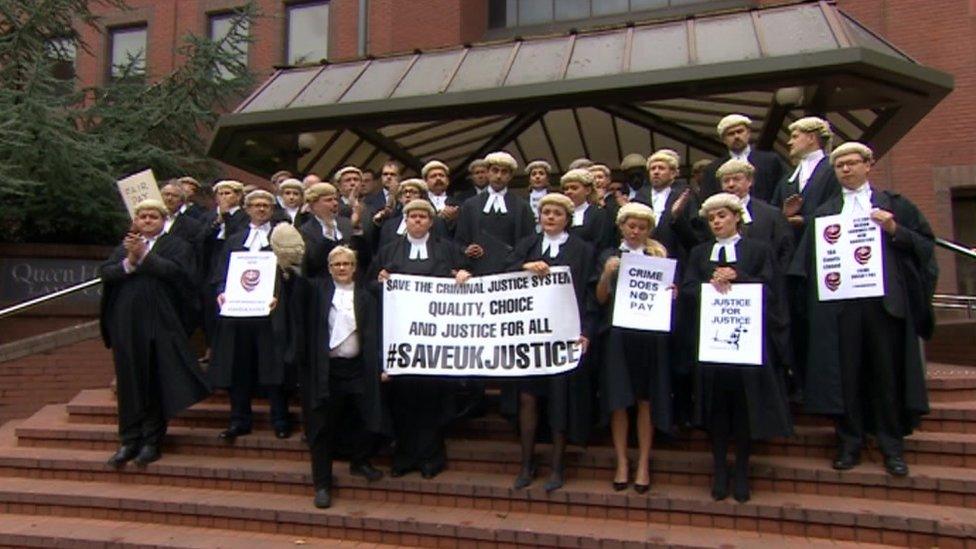
The dispute is over pay, working conditions and legal aid funding
Barristers say many are working for less than the minimum wage as they launched indefinite strike action.
A number of barristers gathered outside Birmingham Crown Court on Tuesday as part of a nationwide protest over pay.
The Criminal Bar Association (CBA) wants a 25% rise in legal aid fees for representing defendants who could not otherwise afford lawyers.
While the walkout will worsen existing court delays, the CBA says it hopes the government now listens to its pleas.
The association has rejected a government offer of a 15% rise from the end of September, saying it would not kick in soon enough or apply to existing cases.
It says the failure to increase pay is causing more people to leave the profession and making the courts backlog worse.
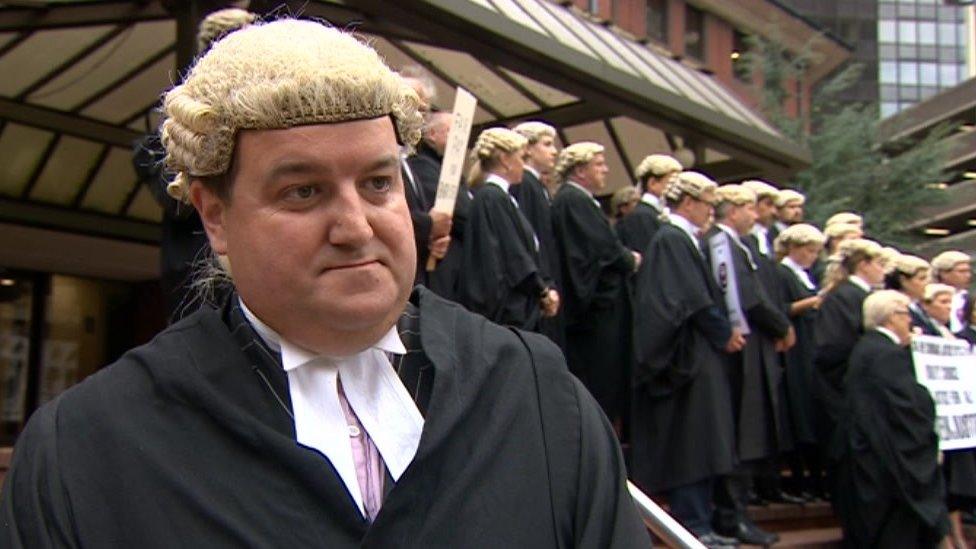
Paul Prior said parts of the job were "soul destroying"
Among those taking part in the Birmingham rally was Paul Prior, who said: "It's something that's quite alien to a lot of us to contemplate; leaving courts empty, leaving cases untried.
"We are not being provided with the resources to provide the services we're expected to provide.
"I think it [the criminal justice system] has broken, because when you have a system with 58,000 cases in the backlog, you are constantly letting people down.
"One of the most soul-destroying parts of this job is to go to see a complainant, maybe of sexual violence, maybe a child, and you have to somehow explain to them that their case can't be heard today, because there's no judge or there's no jury or there's no courtroom available... and that the case is going to go off for six months.
"You've got to hope, if you're prosecuting, that that person comes back and they don't lose confidence altogether in the system and I wouldn't blame them if they did."
Although the all-out strike formally started this week, CBA members have staged intermittent walkouts, escalating to week-long strikes on alternate weeks throughout August.
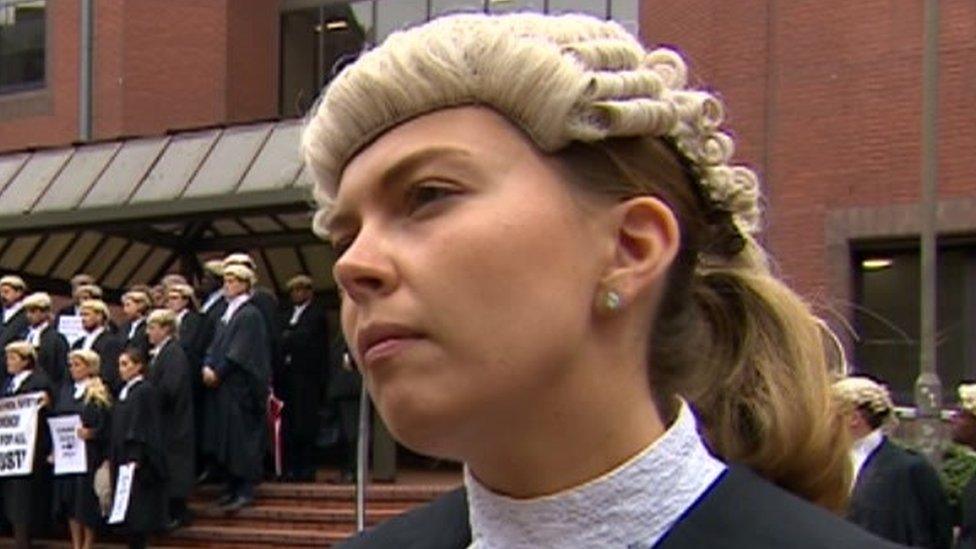
Chloe Ashley said criminal barristers had not seen a pay rise for 16 years
Another CBA member striking in Birmingham, Chloe Ashley, said: "The perception that we earn hundreds of thousands of pounds a year simply isn't true.
"The reality is for criminal barristers they haven't had a pay increase for 16 years."
She said most criminal barristers in the first three years of work earned an average of £12,200 a year.
"Now, if you're working a 75-hour to 80-hour week, which most of them do, well into the night, sacrificing their weekends and so forth, and (are) already saddled with student debt, that's not workable," she said.
"It doesn't take a mathematician to work that out and they're working in effect for less than the minimum wage."
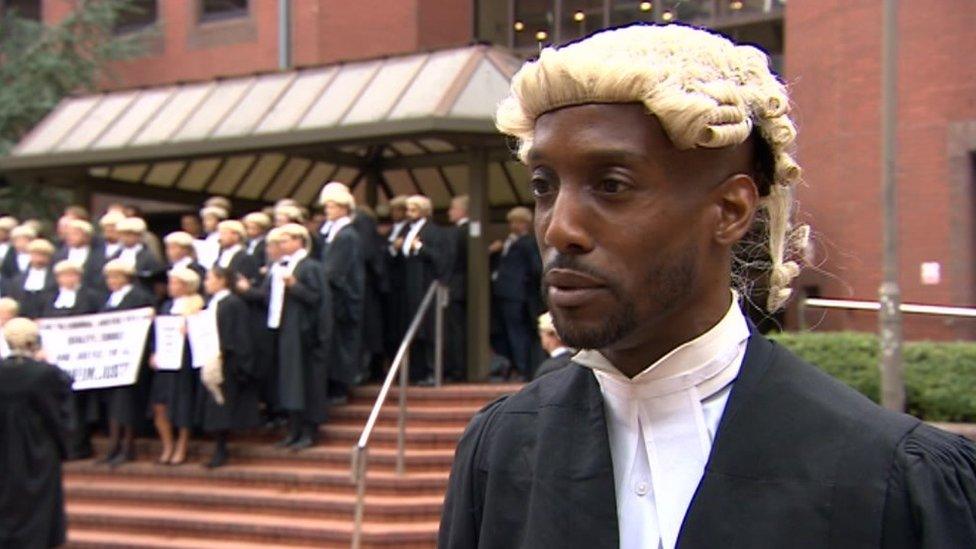
Curtis Myrie was among those protesting
Fellow barrister Curtis Myrie said it was "extremely concerning" the pay issue would lead to people leaving the profession soon after qualifying.
"I'm hoping that with the escalation of the strikes to an indefinite period that the government really do finally listen," he said.
Justice minister Sarah Dines has called the industrial action "irresponsible".
The Ministry of Justice has refused to apply the offered 15% fee rise to existing cases, saying it would "cost a disproportionate amount of taxpayers' money".
The courts backlog in England and Wales stood at 58,973 cases by the end of June, having almost doubled since 2019.
Ministry of Justice figures indicate 6,235 court hearings were disrupted by the strikes between 27 June and 5 August, including 1,415 trials.

Follow BBC West Midlands on Facebook, external, Twitter, external and Instagram, external. Send your story ideas to: newsonline.westmidlands@bbc.co.uk, external
Related topics
- Published26 August 2022
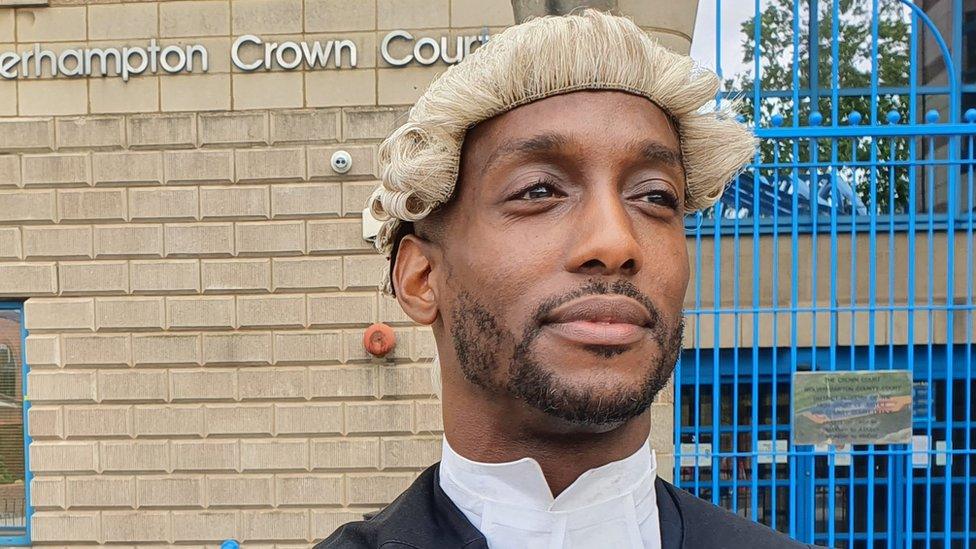
- Published5 September 2022
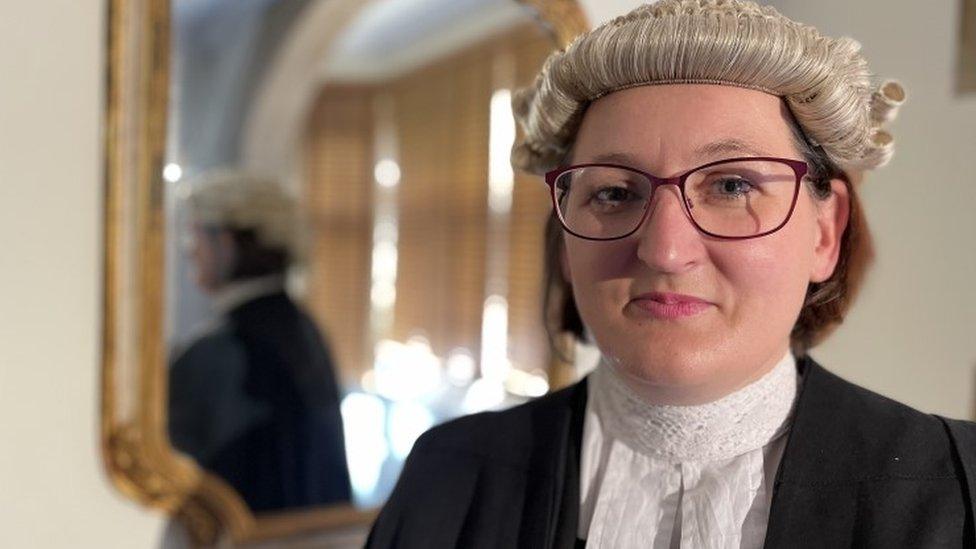
- Published5 September 2022
